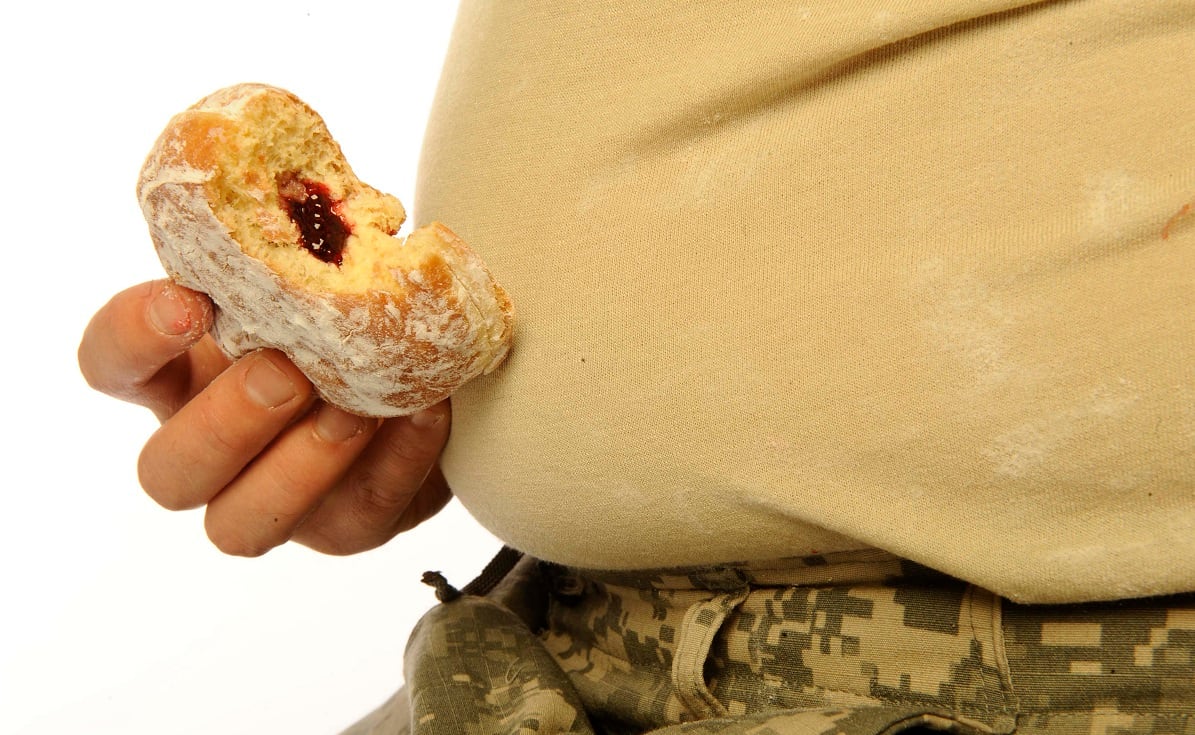An apple a day may keep the doctor away, but veterans don’t seem to be buying the advice.
A comprehensive Wounded Warrior Project survey of more than 33,000 veterans and service members, released Tuesday, shows a vast majority of vets aren’t eating the recommended amount of fruits and vegetables each day — and could be missing out on key health benefits as a result.
“It’s widely recognized that a healthy eating plan is critical for good health and for mitigating the effects of chronic disease,” said Melanie Mousseau, metrics director for the Wounded Warrior Project.
The Department of Agriculture puts the recommended daily fruit intake at 2 cups for men over age 19 and women between 19 and 30. Women who are 31 or older only need 1.5 cups per day to maintain a healthy diet.
Men between 19 and 50 should also be eating 3 cups of vegetables each day. Older men and women between 19 and 50 should eat 2.5 cups, and the recommended amount for women over 50 is 2 cups daily.
Among veterans who responded to the Wounded Warrior Project survey between March and May 2018 — 90 percent of whom reported having more than three service-connected injuries or health problems — more than 28 percent said they ate no fruit in a typical day. Around 44 percent said they had only one serving, which is still under the recommended amount for all adult age groups.
Vegetable counts were slightly better; only about 61 percent of survey respondents were under the USDA’s suggested daily intake, compared to nearly 73 percent of delinquent fruit eaters.
According to the USDA, its recommended portions are appropriate for individuals who get less than 30 minutes per day of moderate physical activity, which includes many of the veterans surveyed who expressed difficulty exercising because of physical or other limitations.
The study also showed that when given the choice between a carrot stick or a bag of chips, veterans are more likely to go for the chips. For example, 8.3 percent reported eating four or more snacks per day, compared to 2.5 and 3.9 percent who said they ate the same amount of servings in fruits and vegetables, respectively. Though the survey did not ask participants to specify what types of snacks they are eating, Mousseau said it’s safe to assume many are processed foods or higher in calories than broccoli or a banana.
In fairness to veterans, many American adults aren’t eating enough fruits and veggies either. The Centers for Disease Control and Prevention reported last year that just 1 in 10 adults are eating the recommended amount.
But healthy eating is an “important," yet “overlooked,” component of maintaining good physical and mental health, and should be even more of a priority for veterans who struggle with pain and chronic conditions, Mousseau said.
“(It’s) more important than (for) the average person to make sure they are filling their body with the proper nutrition,” she said.
RELATED

The 2018 Wounded Warrior Project report is based on the organization’s ninth annual survey — the first to include questions about respondents’ eating habits.
About six percent of respondents were still serving on active duty at the time of the survey, though the overwhelming majority had transitioned out of the military.
Military Times contributor and former reporter Natalie Gross hosts the Spouse Angle podcast. She grew up in a military family and has a master's degree in journalism from Georgetown University.





